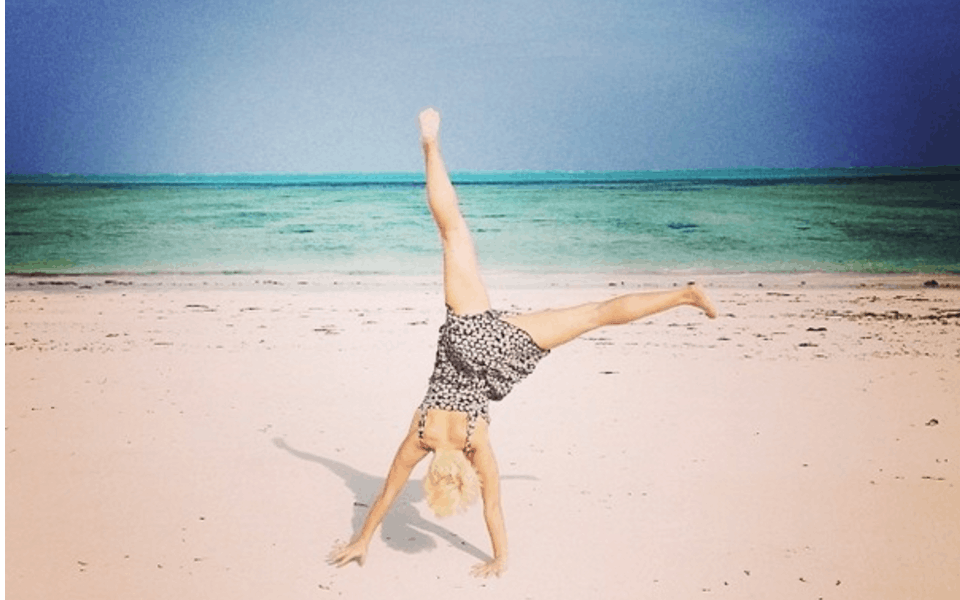
Swimming
by Lucy Jones
The outdoor swimming pool was in the shape of a wonky figure of eight. A bridge crossed its middle. They said it was the biggest pool in Europe. The concrete border was patterned with circles in different sizes. If you fell, the surface was hard and unforgiving. Each bulb of the pool was pinned with two sets of diving boards; four and five boards layered on top of one another. It was an important moment for us children who lived at the school when we finally had the guts to jump off the top one. The pool was protected by grass banks and a high wire fence. It felt secluded. I swam as much as I could, especially on hot days.
Outside the pool, there was the school, where we lived. There were many playing fields framed with trees as well as buildings for music, sports, art and classrooms. The pupils lived in one of the 25 houses, 50 boys in each. They wore black tailcoats with white shirts and looked intimidating when clumped together. They had an unnerving confidence, helpful for those who would run the country later on, I suppose. I do not find them intimidating now.
One summer, I was sitting on a wooden picnic table in the school bar. It was in a small courtyard with high walls. Inside the courtyard, scores of pupils drank pints of lager in the sun. I was 13, or 14 maybe, and had just learned how to apply mascara. It was a very hot day and the beer was bitter. I was wearing my favourite turquoise jumper. There was no breeze in the courtyard. The boys sitting on the bench in front of me started to laugh, and point and stare at my side. I looked to my left and a tall, thin older pupil had unzipped his trousers and put his penis on my shoulder. It looked disgusting. I don’t recall how I reacted. In the next few years, I went back there many times until a pupil threw a water bomb at me. Then I didn’t go back.
The school was always there, but the outdoor pool was separate. I found I could be even more separate by being underwater. It was a different element, a different state. To be submerged was to be concealed. And you cannot think much about anything when you are engulfed by water or jumping off a high diving board, again and again.
There was a big lake where we went on holiday during the summers. My dad taught me how to dive on one of its stone corners. He helped me learn how to curve my back and arms and showed me where to put my weight and how much energy I needed to use to push off. The water wasn’t clear because of the weeds and algae, but it felt fresh and clean. I got better and better and achieved a streamlined swan-dive. I loved that day. But the very best swims were in the ocean there. You could always see interesting fish and other creatures. Above my favourite beach, there was a jutting cliff topped with pine trees. The roads nearby smelled of pine and the air thrummed with crickets that got louder as the dusk settled, and we’d drive home in wet costumes, hair dripping with seawater.
It’s not a new thing for a human to find water comforting and healing. For centuries, hydrotherapy would be used in medicine to treat rheumatism, high blood pressure, minor ailments and injuries and before World War II, hydrotherapy was also used to cure alcoholism. I swam a lot when I stopped drinking. It was a different type of swimming than before. My emotions at the time were extreme but I found they could be regulated by water. Length by length, they levelled out. I used the water as a tool to help me recover, and the focus gave me confidence and strength. I obsessively watched the clock and counted how many metres I could swim. It was primordial. As I thawed out, my swimming relaxed. One day, I turned on my back at an outdoor lido and looked up at the trees turning colour and shedding their leaves. It was autumn and it would soon be too cold to swim outdoors.
In the last few years, some of the great moments of my life have been swims: at dawn in Scotland before hot coffee on the beach, alongside a turtle in Turkey, with friends and phosphorescence in Asia. That wild sea was a far cry from the school pool and it is strange to go back. I walk past the College Chapel. It beams blonde in the late autumn sun, stark against a blue sky. The pupils look tiny. I walk past the first house we lived in when we moved here and recall the hamsters and rabbits and piano and crafts and pancakes and vinyl. Now I’m walking along a country lane, boarding houses and school rooms behind me, pear trees on my left and dog-rose bushes on my right. I’m heading for the pool.
***
Photograph by Lucy Jones
